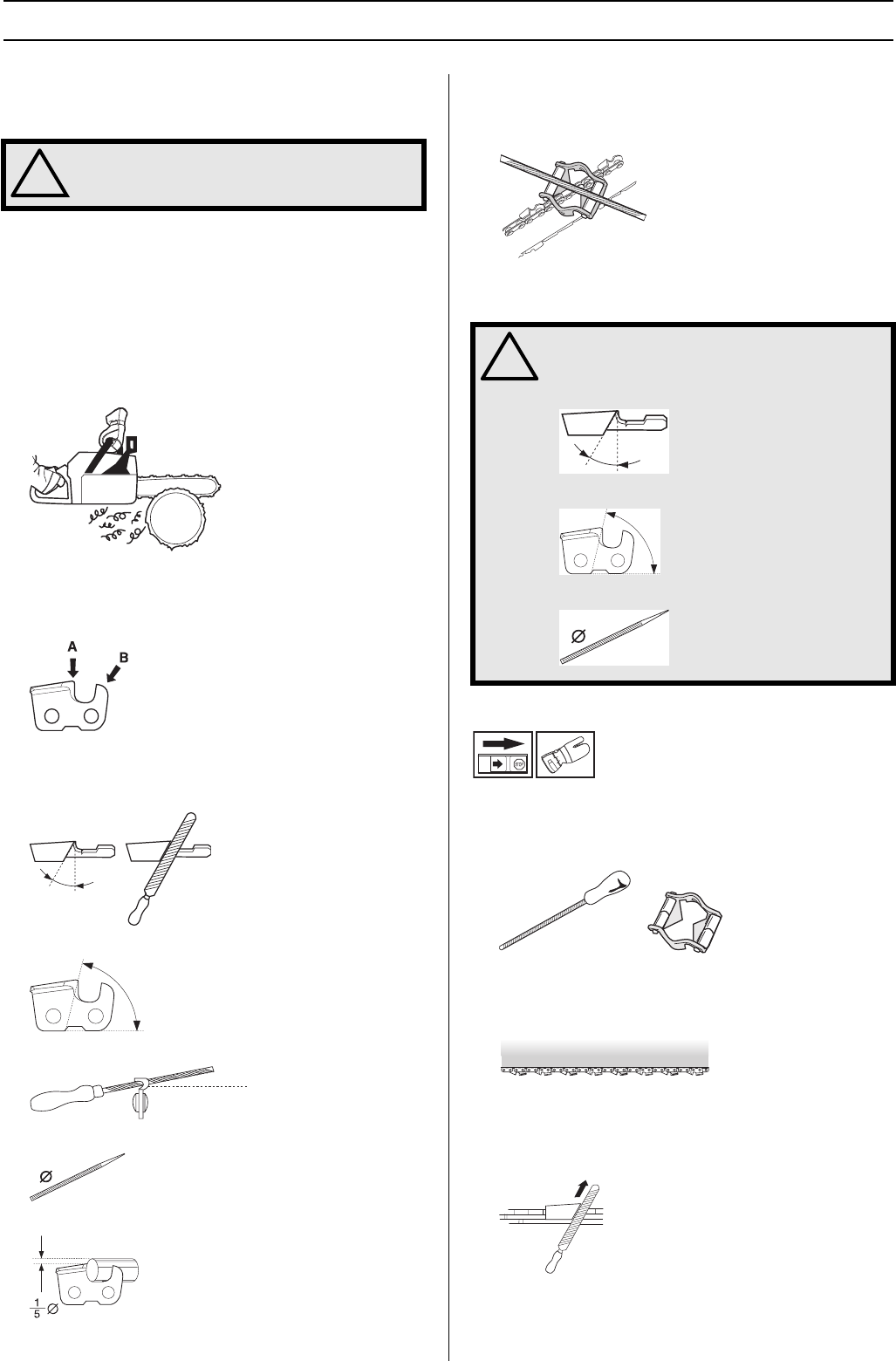
12 – English
SAFETY INSTRUCTIONS
Sharpening your chain and adjusting raker
clearance
General information on sharpening cutting teeth
• Never use a blunt chain. When the chain is blunt you have
to exert more pressure to force the bar through the wood
and the cuttings will be very small. If the chain is very blunt
it will not produce any cuttings at all. Wood powder would
be the only result.
• A sharp chain eats its way through the wood and
produces long, thick cuttings.
• The cutting part of the chain is called the cutting link and
this consists of a cutting tooth (A) and the raker lip (B). The
cutting depth is determined by the difference in height
between the two.
When you sharpen a cutting tooth there are five important
factors to remember.
1 Filing angle
2 Cutting angle
3 File position
4 Round file diameter
5 File depth
It is very difficult to sharpen a chain correctly without the right
equipment. We recommend that you use our file gauge. This
will help you obtain the maximum kickback reduction and
cutting performance from your chain.
See the Technical data section for information about
sharpening your chain.
Sharpening cutting teeth
To sharpen cutting teeth you will need a round file and a file
gauge. See the Technical data section for information on the
size of file and gauge that are recommended for the chain
fitted to your chain saw.
• Check that the chain is correctly tensioned. A slack chain
will move sideways, making it more difficult to sharpen
correctly.
• Always file cutting teeth from the inside face. Reduce the
pressure on the return stroke. File all the teeth on one side
first, then turn the chain saw and file the teeth on the other
side.
!
WARNING! The risk of kickback is increased
with a badly sharpened chain!
!
WARNING! The following faults will increase
the risk of kickback considerably:
File angle too large
Cutting angle too small
File diameter too small


















